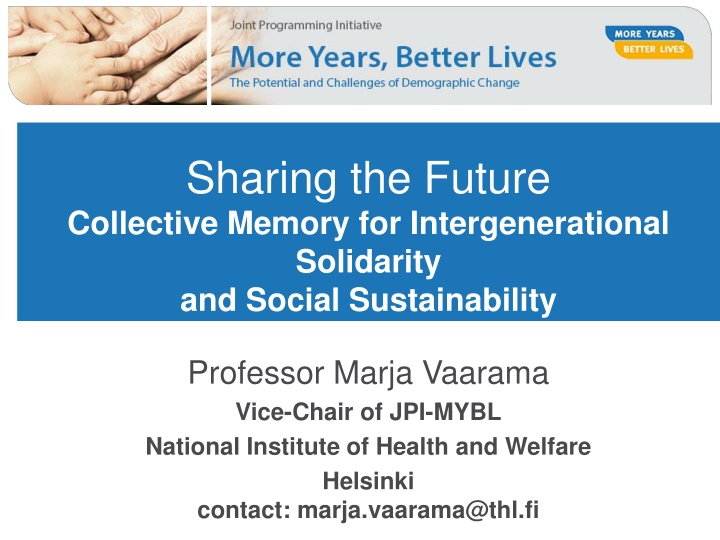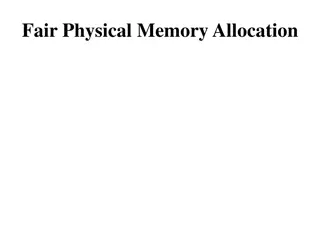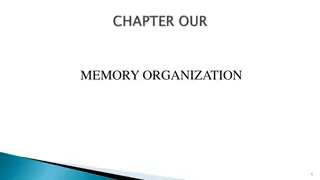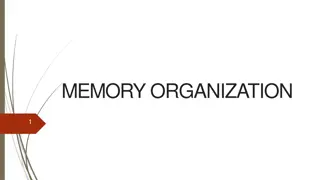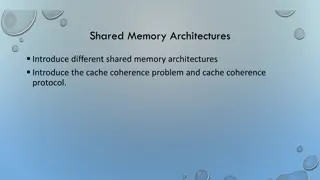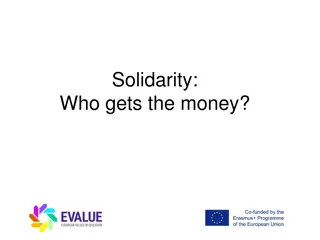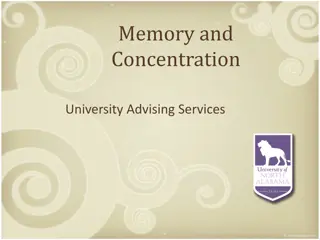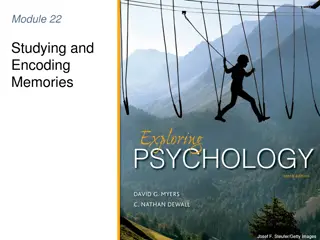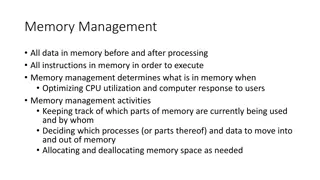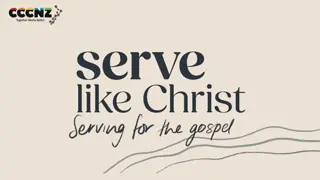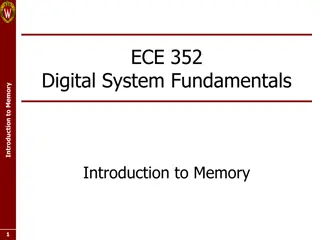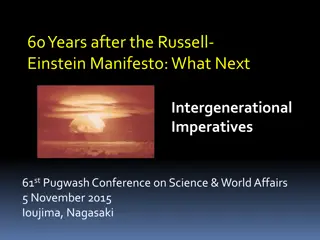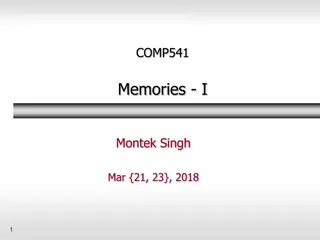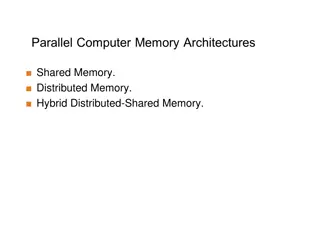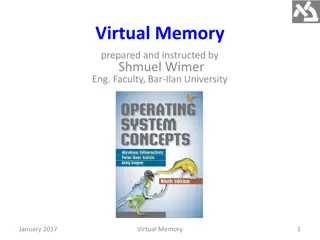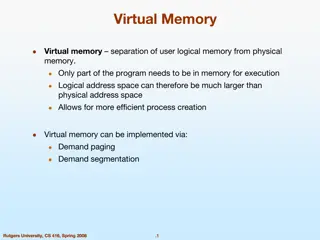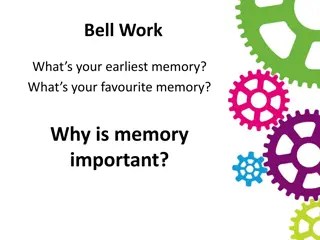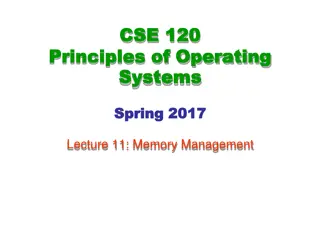Interconnected Generations: Building Intergenerational Solidarity through Collective Memory
Exploring the symbiotic relationship between collective memory and intergenerational solidarity, this presentation by Professor Marja Vaarama delves into how these concepts intertwine for social sustainability. Highlighting the importance of understanding and fostering dialogue between generations, it emphasizes the role of history, culture, and shared values in shaping a cohesive society amidst changing dynamics. The focus is on promoting unity across age groups and ensuring a sustainable future through collaborative efforts.
Download Presentation

Please find below an Image/Link to download the presentation.
The content on the website is provided AS IS for your information and personal use only. It may not be sold, licensed, or shared on other websites without obtaining consent from the author.If you encounter any issues during the download, it is possible that the publisher has removed the file from their server.
You are allowed to download the files provided on this website for personal or commercial use, subject to the condition that they are used lawfully. All files are the property of their respective owners.
The content on the website is provided AS IS for your information and personal use only. It may not be sold, licensed, or shared on other websites without obtaining consent from the author.
E N D
Presentation Transcript
Sharing the Future Collective Memory for Intergenerational Solidarity and Social Sustainability Professor Marja Vaarama Vice-Chair of JPI-MYBL National Institute of Health and Welfare Helsinki contact: marja.vaarama@thl.fi
Outline: Sharing some ideas wih you Introduction: Focus and Thesis of the presentation Central Concept: Collective memory, intergenerational solidarity social sustainability Generations: Age Identity and Generational Identity The challenge: Promoting the dialogue between generations Conclusion
Focus of this presentation Collective memory, as introduced by Maurice Halbwachs in 1950 s, is a social concept involving wide range of issues such as history, culture, science etc, and is also embedded in our everyday life This presentation focusses on he vital role of collective memory in creation, maintaining and developing intergenerational solidarity for socially sustainable development of societies under the impact of DC
Thesis of the presentation Intergenerational solidarity and our collective memory are interconnected it is important to understand the link Intergenerational solidarity is vital for sustainable development of any society, and especially in the circumstnaces of DC - not only in social but also ecomical, political and cultural terms Intergenerational solidarity is based, created, developed and renewed in a dialogue between and within the generations over time in history, and not forgetting the future generations and this process is changing and challenged by DC, the concern of JPI-MYBL
Collective Memory: Social Memory for the Future Collective Memory is not only about the past, it is also about the present and the future. Collective Memory is shaped by what we value about our past and present, and is shaping our hopes and visions of the future. Intergenerational solidarity, on which the generational contract is based, has been the value which has shaped the development of European welfare states, and is part of our collective memory
Two Concepts of Generation Generations as persons of a different age with an age identity, e.g. youth, adult or older, related to each other as children, parents or grandparents,including relatives of similar age (cf. Simon Biggs: existential roles) Generations as persons of similar age with a generational identity based on common experiences of society and history (Karl Mannheim, also Quadango)
Concept of Intergenerational Solidarity The two concepts of generation give rise to two concepts of intergenerational solidarity:
Intergenerational Solidarity First Intergenerational solidarity refers to the solidarity between people in different stages of their life course e.g. between parents and their children, or grandparents and their grandchildren (e.g. Atchley)
Intergenerational Equity Second Intergenerational equity refers to a fair distribution of life chances between generations (Martin Kohli), based on a generational contract , which is embedded - in societal institutions e.g. social rights and - in social practices e.g norms of reciprocity
Integenerational solidarity is connected with conditions of socially sustainable future The concept of Social sustainability: the 4 dimensions (Pieper, Vaarama & Karvonen 2014) Social security Social inclusion Income and access (economic) values and rights (cultural + legal) Social empowerment Social cohesion capabilities, participation (political) trust and caring (social relations)
Concept of Social Sustainability A society shows Social Sustainability (or Social Quality, see vd Maesen & Walker) to the degree, in which political, economic, cultural and social institutions enable people to participate in all four domains to promote their individual Quality of Life. Sustainability is a goal and a value for society.
Collective memory is a dialogue Collective memory is developed in a dialogue within and between generations. The dialogue combines 2 Types of memories (Welzer 2011): - communicative memory of people interacting and living in the present - cultural memory embedded in the cultural and physical environment
Collective memory and intergenerational solidarity are linked with age indentity and generational identity
Age indentity and solidarity Age identity defines for roles in the Family, and these relations are strong and highly valued individually and societally, allthough the family phase over the life course is becoming shorter with fewer children. Family relations are especially reliable in cases of need and dependency this holds in both directions between the generations.
Age Identity and collective memory Parents and grandparents transmit social values to their (grand)children, and form a community transmitting social values in communicative memory. Age identities of youth, adult and older form a cultural model for caring with values like altruism and intergenerational solidarity reaching outside and beyond the family into civil society
Age Identity and demographic change In Western societies: with increasing divorces, remarriages, adoptions, changing partnerships, etc. the pattern of generational relations is less bounded by biological relations and more based on social choices.
Age Identity and demographic change In the circumstances of demographic change and longevity: with longer lives grandparents may live together with their grandchildren for over 30 years with fewer children the generations are thinner with less persons in each generation convoys of people of similar age (relatives, partners, close friends) age together and support each other, become more and more important
Generational Identity and Solidarity People of similar age have common experiences in their biography because the live at the same time in history. Events during the age of transition from youth to adulthood are especially important for a generational identity At any given time, age groups with different generational identities engage in the dialogue (see Attias-Donfut and Wolff)
Generational Identity and collective memory A simplified model describes the dialogue between three generations living today, and possible source of conflicts. The model looks at 2015 and shows three generations and events at age of 20 years - Youth 0-30 years with 2008 crisis - Adult 30- 60 years with 1989 Fall of Wall - Older 60-90 years between WW2 and 68
Generational Identity and collective memory Three generations communicating today Generation Neo-Liberalism 50 years today Generation 50ies 80 years today Generation 2008 crisis 20 years today today 1930 1940 1950 1960 1970 1980 1990...2000...2010...2020 2030 2040 2050 2060 2008 crisis End WW2 68 1989 (after Attias-Donfut&Wolff 2005)
Generational Identity and solidarity Challenges: The dialogue between generations may be endangered because of conflicts between generational identities, e.g. children don t forgive their parents for causing WWs Generations do not experience events together, so have to create a shared memory over history of 60 years or more (red line) including a future not all will live to see.
Challenge Demographic Change impacts on the age structure with effects on life chances of people of all ages relations between generations intergenerational solidarity and social sustainability
Demogrpahic change and Generational contract Social sustainability needs contract between generations The process of creating and maintaining a generational contract depends essentially on sharing of collective memory, which values intergenerational solidarity A dialogue between generations is necessary to adapt and renew the contract under the impact of social and demographic change this dialogue needs to be supported in all societal domains
The Challenge in Politics strengthen political solidarity through empowerment and democratic participation and social inclusion of people of all ages > new governance, transparency, participative means ensure that in ageing societies, the ageing policy makers and voters do not neglect the life chances of young generations strenghten the interaction between research and decision making to diminish the gap between elites and people in public debate
The Challenge in economics strengthen a generational contract enabling young to enter working life and older to retire, with security for both in old age develop new models to distribute paid and unpaid work over a longer working life, and develop new models for work-life-balance Strenghten the understanding that social cohesion is vital for economy to flourish, so social sustainability shall be wtached as closely as the economical sustainability
The Challenge in Culture strengthen awareness of a common history and our cultural heritage (described by other presentations to this conference) ensure that generations share their experiences in a dialogue on solidarity, equity and sustainability with other generations In general, support the dialogue of collective memory by cultural means especially through the educational system
The Challenge in Social Relations develop new models of living and caring, and mutual social support within and between generations, especially in cases of need and dependency reaching beyond family bonds into civil society, co-creation of the future of caring ensure that social inequalities do not exclude people from networks of support
Conclusion Collective Memory that values intergenerational solidarity is vital for socially sustainable development of European (and other) welfare states Science and education can enrich our collective memory and the dialogue between generations, for the benefit of the existing generations and generations to come JPI-MYBLhas a challenge and the potential to improve our collective memory on demographic change, and our understanding of the conditions of intergenerational solidarity and social sustainability.
Selected References: Atchley, R.C. (1996), Social Forces and Aging: An Introduction to Social Gerontology, New York: Wadsworth Attias-Donfut, C., Wolff, F.-C.,(2005), Generational Memory and Family Relationships, in: Johnson, M.L. (ed) The Cambridge Handbook of Age and Ageing, Cambridge: University Press Biggs, S.(2014), Adapting to an Ageing Society the need for cultural change, Policy Quarterly, 10/3, 12-16 Halbwachs, M. (1997), La Memoire collective, Paris: Albin Michel JPI-MYBL, Strategic research Agenda, http://www.jp-demography.eu Kohli, M. (2005), Generational changes and Generational Equity, in: Johnson, M.L. (ed) The Cambridge Handbook of Age and Ageing, Cambridge: University Press Maesen, vd L, Walker, A. (2012), Social Quality: from Theory to Indicators, New York: McMillan Mannheim, K. (1952), Essays in the Sociology of Knowledge, London: Routledge/Kegan Paul Pieper, R., Vaarama, M., Karvonen, S. (2014) An integrated, theory-based approach to social sustainability, ESPAnet Conference, Oslo, 4-6 September (forthcoming) Quadagno, J. (2002), Aging and the Life Course, Boston: McGraw Hill Vaarama, M & Pieper R (2011) The SOLA-model. http://www.thl.fi/slide share Welzer, H. (2011), Ged chtnis und Erinnerung, in:Jaeger, F., Ruesen, J. (eds.), Handbuch der Kulturwissenschaften 3, Stuttgart: Metzler
